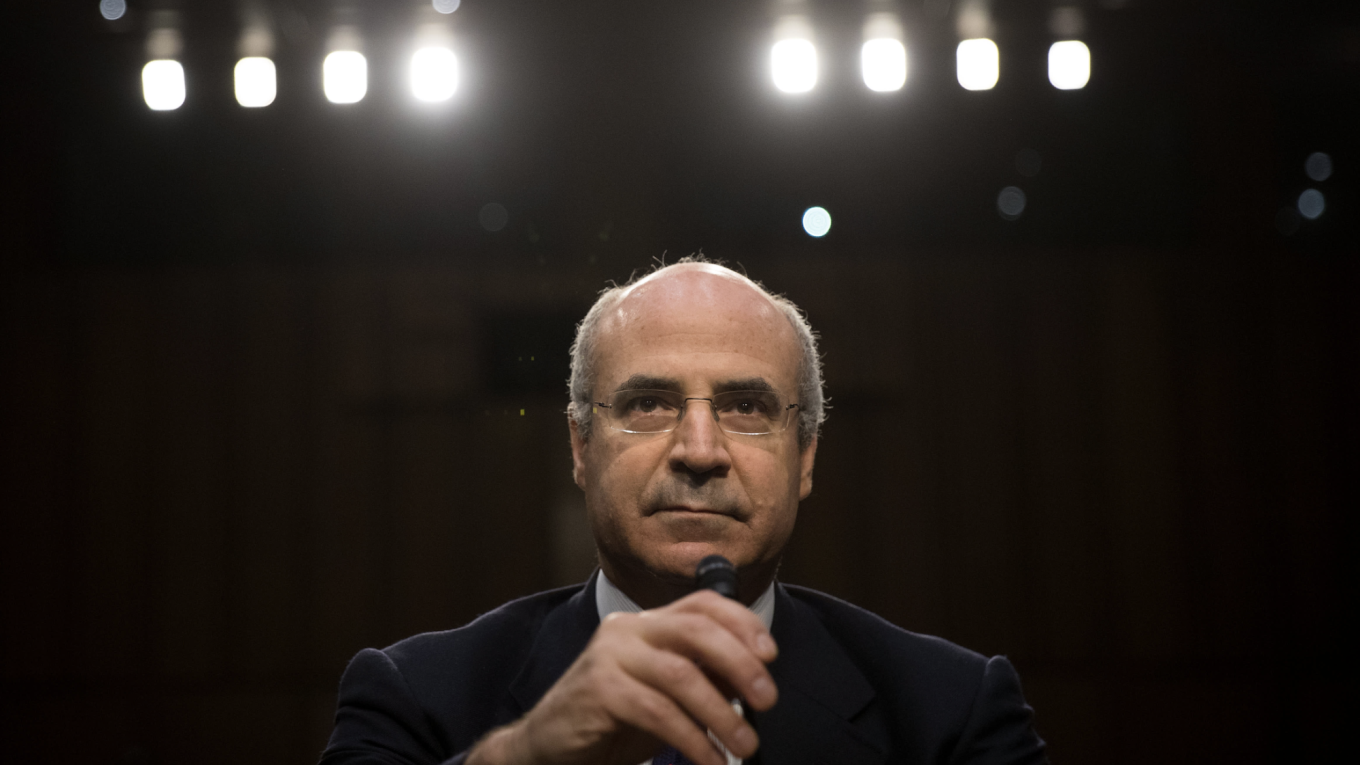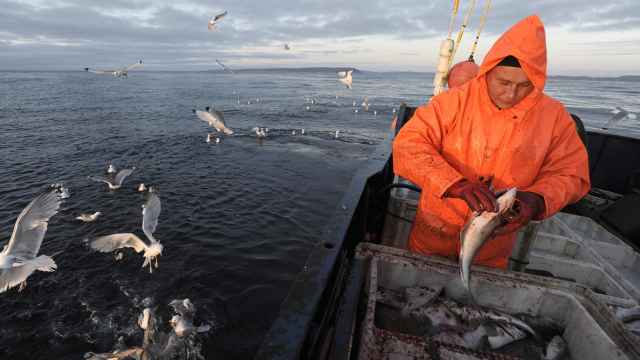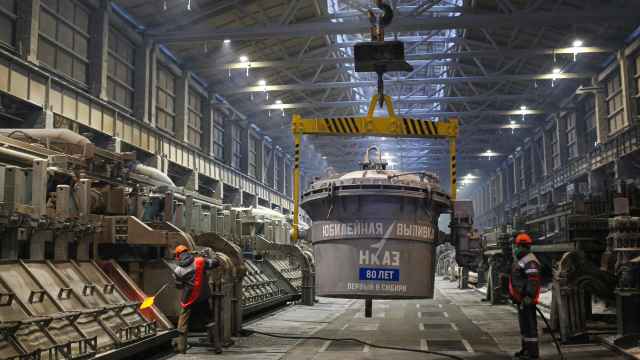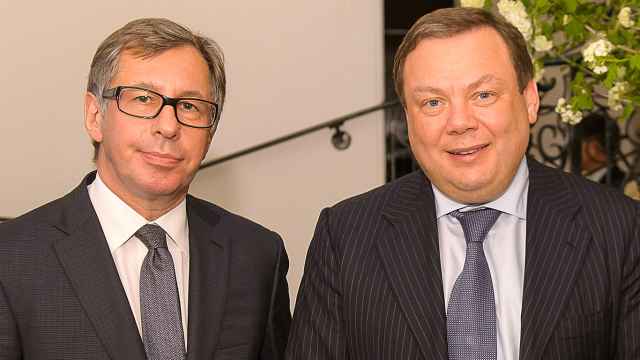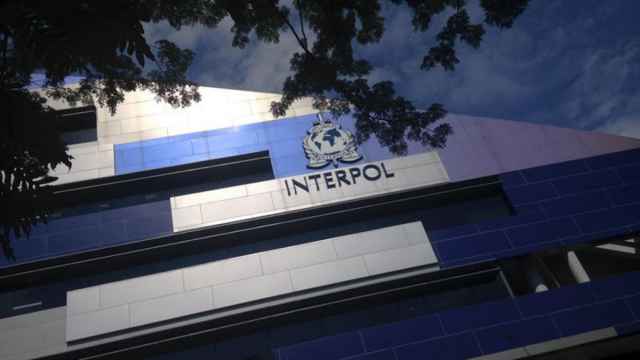Once a leading investor in Russian markets, U.S.-born British financier Bill Browder has been an outspoken critic of the Kremlin since the death of his lawyer, Sergei Magnitsky, in a Russian prison in 2009.
Browder is best known for championing the Magnitsky Act, legislation enabling sanctions against Russian officials involved in corruption and human rights abuses.
He is now urging Western governments to redirect the hundreds of billions of dollars in frozen Russian assets abroad to fund Ukraine’s defense and reconstruction following Russia’s invasion.
Ahead of his upcoming talk in Amsterdam, Browder spoke with The Moscow Times about the feasibility of those efforts, how he believes sanctions on Moscow should be reformed and how he views the relationship between the Russian and U.S. leaders.
The Moscow Times: The European Union has proposed its 19th package of sanctions against Russia, which it says ‘are severely affecting Russia's economy.’ How do you assess the impact of sanctions after more than three years of full-scale war in Ukraine?
Bill Browder: Sanctions are very painful for Russia. Russia has committed a grave international crime, which is invading a foreign country. And Vladimir Putin is basically executing a terrorist campaign, a campaign of terror against a peaceful neighbor, which is a thousand times worse than what Osama bin Laden did to New York on September 11th. … The number of dead people is unimaginable. There has to be a punishment for that type of behavior and the punishment should serve two purposes: one, it should be a straight-up punishment, because this is such an atrocious crime, and two, hopefully the punishment also in some way degrades Putin's ability to continue to be a terrorist, to continue to have the resources to fight his war of terror or inflict his reign of terror on these peaceful neighbors. So sanctions are appropriate and necessary.
Then the question is, have the current sanctions done what they're supposed to do? The answer is that they've created some punishment and I'm sure that the people in the Kremlin are cursing the sanctions every day. I'm sure that they're also trying to put on a brave face, which doesn't reflect the pain that they're suffering. However, the Russian economy continues to function at such a pace that it does allow Putin to generate more financial resources. Those financial resources are then used to continue to allow him to launch more terror attacks on innocent people. Therefore, we need to say, ‘Well, how do we fix that?’ Because obviously they're not doing the trick completely. In my opinion, the main bottleneck is oil. Oil is the main export commodity from Russia. Russia generates hundreds of billions of dollars a year from the sale of oil. And if that were to somehow be curtailed, then that would actually prevent Putin from having the resources in the future to continue his reign of terror on innocent people.
MT: What lessons from the Magnitsky Act’s adoption can be applied today to make sanctions more targeted and effective?
BB: The Magnitsky Act has been a very much greater success than I could have ever imagined when I started the campaign. I could have never imagined that 35 countries would have the Magnitsky Act and that it would create such troubles, not just for Russian human rights violators, but for human rights violators all over the world — China, Iran, Turkey. The Magnitsky Act is a great piece of legislation and there are certain places where it needs to be reformed, there are certain countries that still don't have it. For example, Japan and New Zealand don't have the Magnitsky Act.
There are certain countries that have Magnitsky Acts, like the European Union, where it's not properly structured. The Magnitsky Act in the European Union doesn't apply to corruption, it just applies to human rights abuse. Oftentimes, corruption is just as intertwined with human rights abuse as the people who are stealing the money are just as evil as the people who are conducting the torture. Europe needs to fix that. Third, there's not a lot of coordination between countries. That needs to be done so that if a person gets added to one country's list they're almost automatically added to other countries' lists.
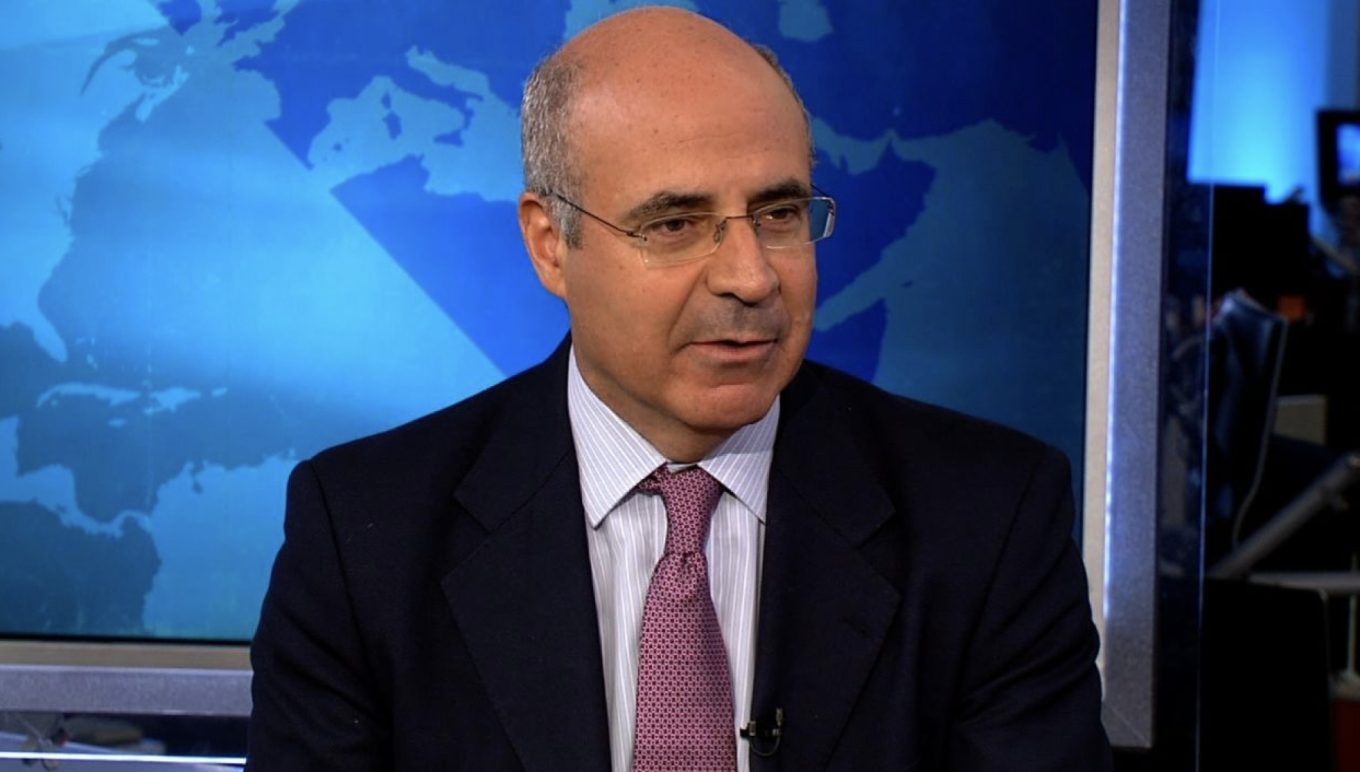
MT: Western countries are holding $300 billion in cash and bonds belonging to Russia’s Central Bank. You’ve argued that the West should use these frozen assets to fund Ukraine’s defense and reconstruction. Some European leaders — particularly in Germany — are now seeking to channel part of these assets, currently frozen in Belgium, into a loan for Kyiv. How realistic is this?
BB: The fact that we've frozen $300 billion of Russian Central Bank reserves is a really helpful thing that was done in the first week of the war. Russia has done $1 trillion of damage to Ukraine. So the [frozen] money should be confiscated and should be given to the Ukrainians for either their defense or, if the war were ever to end, for their reconstruction. Up until a few weeks ago, I was very frustrated with the position that many governments were taking, which is that somehow they believed that Russia was protected, or that money was protected by sovereign immunity, when at the same time Russia wasn't respecting the sovereign borders of a neighboring state. It was very frustrating to me that that was the position, but it seems now that there has been a new development, initiated by the German government, which would effectively come up with a solution which allows the money to be used for Ukraine. That's really an important thing.
I suspect that we’re not done yet. For example, Viktor Orbán from Hungary, who used his power within the European Union to try to stop this from happening. But in the end, it's obviously going to happen and it's going to happen for one very simple reason, which is that the war has gone on for so long that the Europeans are running out of money, and since Trump has pulled out, they're the main funders of Ukraine. Either the British, French, German taxpayers will pay or Putin will pay. I think it's a much easier pitch to the people of Germany, France and the U.K. for Putin to pay than to raise taxes.
MT: Kremlin spokesman Dmitry Peskov said that such steps ‘will not go unanswered’ and Moscow previously threatened Moscow would retaliate, implying it could also confiscate Western assets in Russia. What impact could these threats have on Western sanctions policy?
BB: Let me put it this way: Anyone who continues to have assets in Russia deserves to have those assets taken away. So I've had no sympathy for those people when it comes to this situation and I can guarantee you that the numbers are nowhere near $300 billion.
MT: Some argue that sanctions fatigue is setting in among Western countries. Do you see signs of this?
BB: Even I'm a little fatigued. When the European Union comes out with these sanctions lists, it's sort of technical. I think that there need to be bolder moves. So for example, if we were to cut off the supply of oil or embargo or punish anybody who buys Russian oil, that's a really bold move. Whereas if you sanction somebody in some government ministry, nobody even understands who that person is or why they're being sanctioned. Not to say that those are bad, but I think there needs to be a bolder approach towards sanctions. I think if the European Union was bold, a lot of people would wake back up and say: ‘We understand why sanctions are so good.’
MT: During Trump’s first term, you often said that he was being 'played' by Putin. How would you assess the current situation, given Trump’s unsuccessful attempts to broker peace in Ukraine and strike a deal with Putin?
BB: Trump believes that he has a personal relationship with Putin and that relationship should have led to his objective of ending the war. Putin obviously doesn't value that relationship in the way that Trump does and he doesn't want to end the war. I find that Trump's statements about Ukraine are very worrying. He has said on several occasions that Ukraine shouldn't have started the war, that Ukraine is somehow responsible for the war. These are statements which are just completely devoid from the facts and the truth. I don't know where he comes up with these ideas, but it's pretty frustrating for anybody who cares about peace, truth, justice to watch and hear this type of thing being said by the president of the United States.
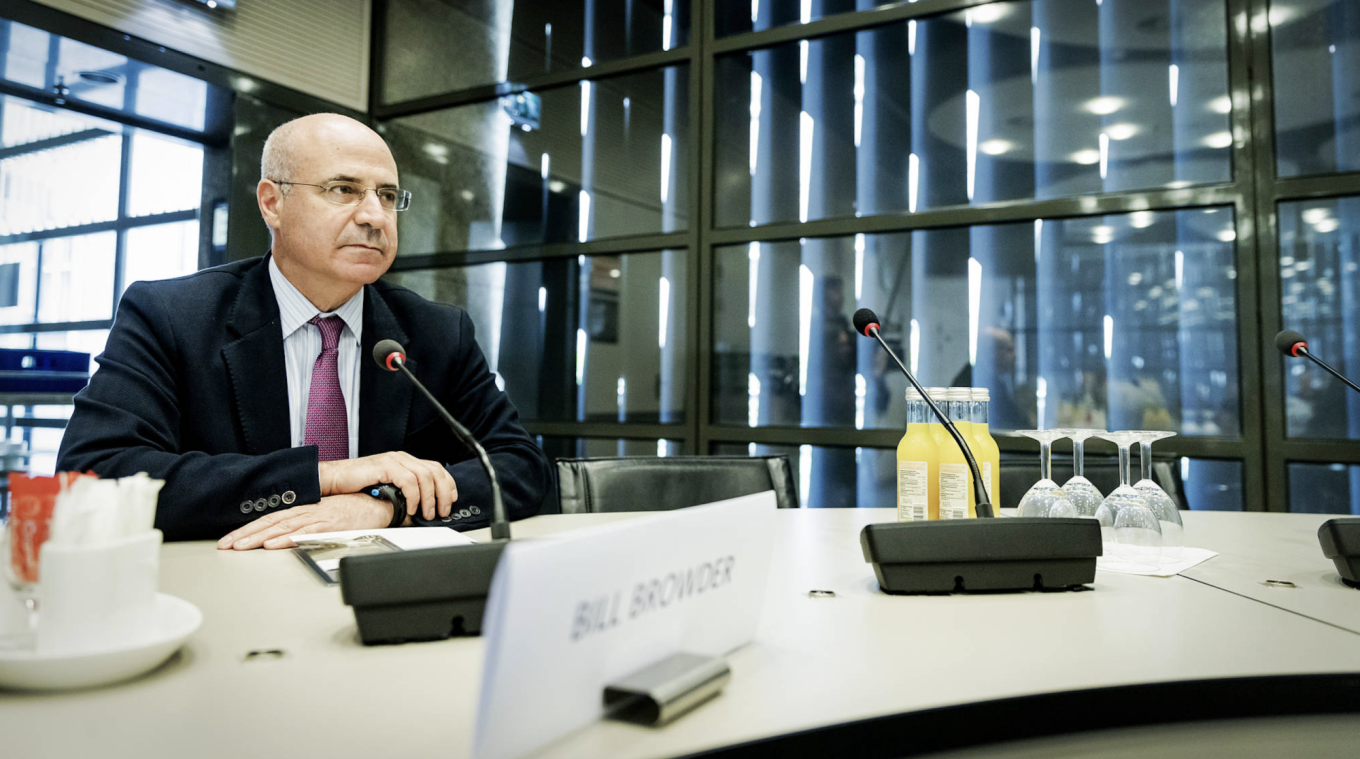
MT: There are more than 1,000 political prisoners in Russia. And last month, Russia officially withdrew from the European Convention for the Prevention of Torture. What can Western countries do to support political prisoners?
BB: We went through this exact scenario with the hostage-taking of Vladimir Kara-Murza. Vladimir was sentenced to 25 years in prison for denouncing the war. He was suffering greatly in solitary confinement in Siberia and might have even been killed like [Kremlin critic Alexei] Navalny if he had been left there. The only leverage we had in that situation was a prisoner swap.
But I don’t think there's enough prisoners in the West to swap for the political prisoners in Russia. Furthermore, I think that the level of political will in the West doesn't really exist. The problem is that many of these prisoners are neither foreigners nor well known. I think that if there ever was a major ceasefire agreement, the political prisoners should be part of that agreement. I think they’re an important part of the whole terror that Putin has inflicted. It’s not just against Ukraine — it’s against his own people.
MT: You open your latest book by describing your brief detention in Spain at the request of the Russian authorities. Has your sense of personal security changed since the war began?
BB: The level of animosity that Putin and the Kremlin has towards me has not changed in any way. However, the number of other people that they're angry with has gone up 100 times since the war began because there's all sorts of other Westerners who are supporting Ukraine that are calling for tough measures on Putin.
I don't believe that I'm any safer, but I do believe that the resources of the Russian government are spread very thin when it comes to attacking their enemies abroad. There's not as many people focused on me because there's so many people focused on others — that gives me a little bit of safety, but it doesn't mean that I can in any way relax.
This is a murderous regime. Once you're on their hit list, you never go off of it. I take the same precautions I've always taken because I've got to be lucky every day, they've got to only be lucky once.
Bill Browder will take part in a public discussion at De Balie in Amsterdam on Thursday, Oct. 9. More information and tickets available here.
A Message from The Moscow Times:
Dear readers,
We are facing unprecedented challenges. Russia's Prosecutor General's Office has designated The Moscow Times as an "undesirable" organization, criminalizing our work and putting our staff at risk of prosecution. This follows our earlier unjust labeling as a "foreign agent."
These actions are direct attempts to silence independent journalism in Russia. The authorities claim our work "discredits the decisions of the Russian leadership." We see things differently: we strive to provide accurate, unbiased reporting on Russia.
We, the journalists of The Moscow Times, refuse to be silenced. But to continue our work, we need your help.
Your support, no matter how small, makes a world of difference. If you can, please support us monthly starting from just $2. It's quick to set up, and every contribution makes a significant impact.
By supporting The Moscow Times, you're defending open, independent journalism in the face of repression. Thank you for standing with us.
Remind me later.



